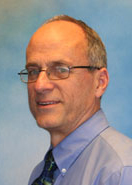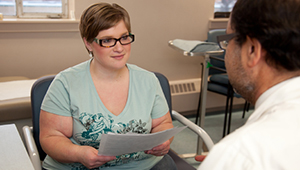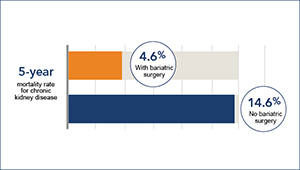Obesity
Research overview
“Obesity is the number-one health problem in the United States because it negatively affects our population’s health more than any other condition,” said Kaiser Permanente Washington Health Research Institute Senior Investigator David Arterburn, MD, MPH. Kaiser Permanente Washington researchers are doing practical research to learn how doctors, patients, families, employers, and policymakers can best work together to prevent and treat obesity.
“We’re focusing on three ways to halt the obesity epidemic,” said Senior Investigator Dori Rosenberg, PhD, MPH. “We’re helping to change obesity-promoting environments, bringing evidence-based prevention and treatment programs into health care systems, and helping people develop lifelong healthy diet and activity habits.”
Kaiser Permanente Washington obesity research areas include:
- reducing sedentary behavior and promoting physical activity and healthy diet in various age groups, populations with chronic conditions, and families;
- shared decision making to help patients find the best way to a healthy weight;
- implementing health coaches in primary care to support behavior changes;
- social networks that support lifestyle change programs;
- relationships between medications and genetic factors in developing obesity;
- health system, community, and national policies that address obesity;
- relationships between obesity and depression, diabetes, and other conditions; and
- long-term benefits and risks of bariatric (weight loss) surgery.
“Obesity is caused by many factors, so at Kaiser Permanente Washington, we’re working on many levels,” said Paula Lozano, MD, MPH, a senior investigator and Kaiser Permanente Washington’s assistant medical director for preventive care. “We’re improving health care to help people who are obese now. But since obesity is a societal problem, we’re also studying how to change our homes and workplaces and neighborhoods to create more healthy environments.”
Recent publications on Obesity
Hibbing PR, Carlson JA, Steel C, Greenwood-Hickman MA, Nakandala S, Jankowska MM, Bellettiere J, Zou J, LaCroix AZ, Kumar A, Katzmarzyk PT, Natarajan L Low movement, deep-learned sitting patterns, and sedentary behavior in the International Study of Childhood Obesity, Lifestyle and the Environment (ISCOLE) 2023 Nov;47(11):1100-1107. doi: 10.1038/s41366-023-01364-8. Epub 2023-08-14. PubMed
Ji M, Negriff SL, Slezak JM, Taylor BL, Paz SR, Bhakta BB, Macias M, Arterburn DE, Crawford CL, Drewnowski A, Lewis KH, Moore DD, Murali SB, Young DR, Coleman KJ Baseline Psychosocial, Environmental, Health, and Behavioral Correlates of 1- and 3-Year Weight Loss After Bariatric Surgery 2023 Oct;33(10):3198-3205. doi: 10.1007/s11695-023-06791-0. Epub 2023-08-23. PubMed
Hung A, Maciejewski ML, Berkowitz TSZ, Arterburn DE, Mitchell JE, Bradley KA, Kimbrel NA, Smith VA Bariatric Surgery and Suicide Risk in Patients with Obesity 2023 Oct;278(4):e760-e765. doi: 10.1097/SLA.0000000000005825. Epub 2023-02-21. PubMed
Ehlers AP, Yang J, Thumma J, Howard R, O'Neill S, Arterburn D, Telem DA, Dimick JB Comparison of safety and healthcare utilization following sleeve gastrectomy or gastric bypass among medicare beneficiaries using sex as a biologic variable 2023 Oct;19(10):1119-1126. doi: 10.1016/j.soard.2023.04.332. Epub 2023-04-29. PubMed
Howard R, Yang J, Thumma J, Ehlers A, O'Neill S, Arterburn D, Ryan A, Telem D, Dimick JB Comparative Safety of Sleeve Gastrectomy and Gastric Bypass Up to 5 Years After Surgery in Patients with Medicaid 2023 Jun;277(6):979-987. doi: 10.1097/SLA.0000000000005692. Epub 2022-08-29. PubMed
Researchers in Obesity
 David E. Arterburn, MD, MPHSenior Investigator |
 Allen Cheadle, PhDSenior Investigator, KPWHRI; Senior Research Associate, CCHE |
 Andrea J. Cook, PhDSenior Biostatistics Investigator |
 Maricela Cruz, PhDAssociate Biostatistics Investigator |
 Nicole M. Gatto, PhD, MPHPrincipal Collaborative Scientist |
 Beverly B. Green, MD, MPHSenior Investigator |
 Mikael Anne Greenwood-Hickman, MPHSenior Collaborative Scientist |
 Paula Lozano, MD, MPHSenior Investigator; Director, ACT Center |
 Dori E. Rosenberg, PhD, MPHSenior Investigator |
 Gregory E. Simon, MD, MPHSenior Investigator |











